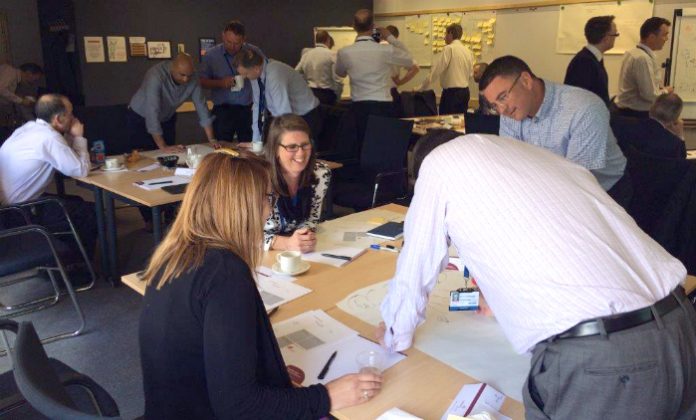
Solving problems doesn’t always have to be a job for the bosses. Darren Wallis explains what has been achieved at the University of Warwick by empowering staff to identify and implement solutions directly.
Achieving efficiency and effectiveness in universities is motivated in part by the need to respond to changing patterns of public expenditure; this is a key strategic consideration for many. Recognising that it is also – more importantly – about how to sustain long term success through releasing capacity to continually reinvest in the student and academic experience, University of Warwick registrar Ken Sloan launched the Simplify, Collaborate, Deliver (SCD) initiative in 2014, empowering the staff community to genuinely play their part in the stewardship of the university.
Some elements of SCD will be recognisable as process improvement. But what makes the initiative transformational it is that it is a cultural ethos that infuses our entire approach at Warwick. Critical to the success of SCD is that it is people-led: staff identify and implement solutions directly.
Ken and other senior leaders do not simply endorse improvements, but actively participate and help to define opportunities. The cultural ethos is supported through structured events, proactive use of diverse channels of communication to share best practice and incentivise action, a training and development programme and integration of SCD in recruitment, recognition and reward structures.
Within the SCD umbrella we are piloting an ideas platform to generate and develop a pool of ideas for improvement – from specific challenges to open forums, from quick wins to disruptive breakthroughs. In effect, we are crowdsourcing the identification and resolution of some of our most thorny issues.
The undergraduate admissions process
The application of SCD to the undergraduate admissions process is a prime example of a cross functional team empowered to make changes to improve service. Despite actual process improvements since the implementation of a new paperless system in 2013, the undergraduate admissions process was taking too long. Combined with other external pressures and increased competition, turnaround times and customer service needed to improve. IT system changes would take time, so improvements would need to come in other ways. Urgent action was needed.
The solution: updates process, staffing models and training
A solutions-focused ‘rapid improvement’ workshop between admissions staff and academic department representatives took place in August 2014 to plan for the 2015 entry UCAS process. Major effort within the undergraduate admissions team ensured that the new arrangements for 2015 entry processing were planned, consulted upon and put in place in September 2014 with immediate results:
- Training was re-designed to enable intensive training and rapid feedback at any point in the cycle.
- The optimum number of staff required to meet productivity targets was calculated to smooth out the ‘lumpiness’ of the admissions process.
- ‘Right first time’ targets were included to enhance transparency and accountability.
- The number of process steps was significantly reduced and decision making simplified.
Improved conversion
Real changes in undergraduate admissions outputs have been seen as a result of this collaboration and improvements to process, staffing models and training:
- 2015 entry UCAS processing began a month earlier than previous years with first decisions released on 15 September 2014;
- Output increased from an average of 23 decisions per person per day to 60 per day;
- 17,262 decisions were processed by the end of December 2014 compared to 7,909 decisions in 2013, a 218% increase;
- There was a reduction in median turnaround from 56 days to eight calendar days;
- Fewer queries were received (i.e. ‘failure demand’ reduced) and those could be answered more quickly – average response times went down from 1-2 weeks to 1-2 days;
- Quicker turnaround times on decisions gave applicants a positive first impression of Warwick and the number of applicants firmly accepting their offers increased by 5%.
Making improvements to the admissions system in which they all participated made staff feel more valued, working together across administrative and academic departments to achieve real transformative outcomes.
In turn, team members have become champions for SCD across the institution, actively participating in further developments across a host of activities such as research contracts, procurement and estates maintenance. Staff feel empowered and valued through these considerations, and become key contributors in the university’s success.
Darren Wallis is the director of strategic programme delivery at the University of Warwick
Added 22/06: The success of the transformation has been recognised with the Times Higher Education Leadership and Management award for Outstanding Admissions Team







